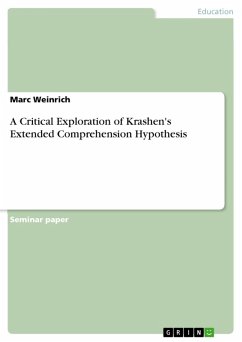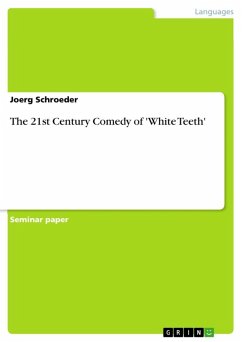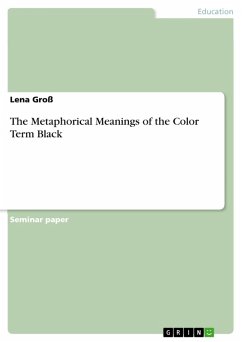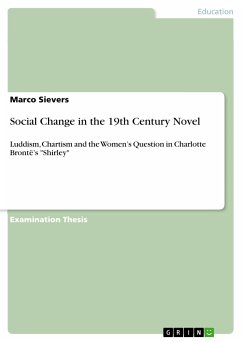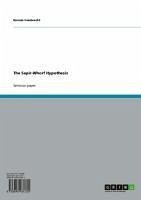
The Sapir-Whorf Hypothesis (eBook, ePUB)

PAYBACK Punkte
0 °P sammeln!
The relationship between language, thought and reality has always been a fascinating subject for linguists and philosophers. Special attention was paid to it in the 20th century when Edward Sapir and Benjamin Lee Whorf published their opinions to this subject. Whorf forms the main part of the Sapir-Whorf hypothesis, because he was introduced by Sapir to his general approach to linguistics and then extended it in his beliefs. The term "Sapir-Whorf hypothesis" was first introduced by J.B. Carroll and states in general that a human's language shapes his perception of reality or in other words, th...
The relationship between language, thought and reality has always been a fascinating subject for linguists and philosophers. Special attention was paid to it in the 20th century when Edward Sapir and Benjamin Lee Whorf published their opinions to this subject. Whorf forms the main part of the Sapir-Whorf hypothesis, because he was introduced by Sapir to his general approach to linguistics and then extended it in his beliefs. The term "Sapir-Whorf hypothesis" was first introduced by J.B. Carroll and states in general that a human's language shapes his perception of reality or in other words, that the world as we know it is largely predetermined by the language of our culture (Jandt, 1995: 93). Occurring differences between languages do also represent the basic differences in the worldview of different cultures (Jandt, 1995: 101). In this survey a general introduction to the hypothesis will be given by Sapir's and Whorf's definition of language. Furthermore the basic assumptions of the hypothesis will be conveyed. With the help of data taken from different languages these assumptions will be illustrated in detail. Finally also attention will be paid to criticism on the hypothesis.
Dieser Download kann aus rechtlichen Gründen nur mit Rechnungsadresse in A, B, BG, CY, CZ, D, DK, EW, E, FIN, F, GR, HR, H, IRL, I, LT, L, LR, M, NL, PL, P, R, S, SLO, SK ausgeliefert werden.




